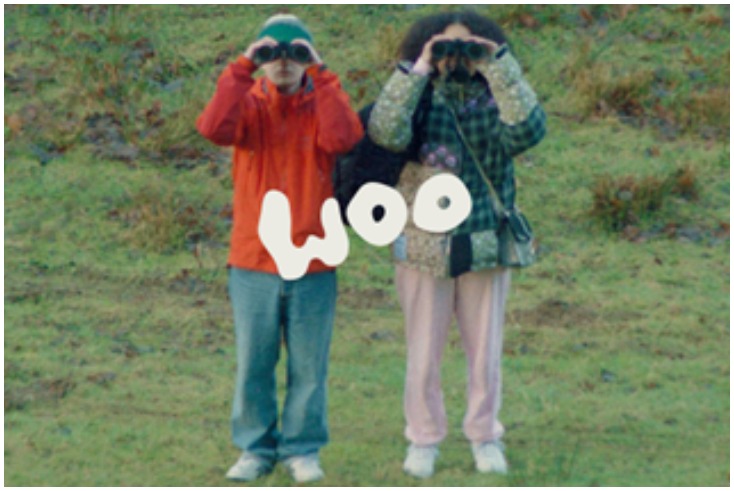Why ITV-backed Woo is targeting ‘Generation Zen’

Woo, an ITV-backed media proposition, has launched today to make wellness accessible, desirable and relatable to Gen Z.
Describing itself as “a new media culture brand”, Woo is a digitally-led multimedia content marketplace fully owned by ITV through its Studio 55 venture with Founders Intelligence which invests in new media and entertainment businesses aimed at 16 to 34-year-olds.
Stephen Mai, Woo’s CEO and founder, who has previous roles at Vice, Boiler Room and LADBible, told The Media Leader this means it can benefit from being part of a big eco-system and support structure, while having agency to be an agile and disruptive small business.
In terms of business model, Mai clarified Woo will not carry advertising for at least the first six months.
He added: “Our business model isn’t about monetising clicks through advertising, instead our strategy is to distribute our editorial, shows and content to wherever our audience consumes – the unexpected corners, the traditional places – streaming platforms/broadcast, and far beyond. This freedom allows us to approach things differently, creatively and strategically.”
“We wanted to shift the monetisation model for media brands and build a business that didn’t rely on, and therefore render us beholden to, brands for revenue and survival. Woo’s marketplace model gives us the freedom to build the platform in a way that’s led by creativity and audience-need above anything else,” he added.
He said at Woo’s launch event in London that if it were to carry advertising in the future, selected advertisers “must want to innovate” and “strongly align with its purpose” of making wellness as part of life and culture for Gen Z as fashion and music.
“We don’t plan to follow a traditional advertising model”, Mai said, adding: “We understand greater value can be garnered for both brands and our audience by exploring ways to creatively integrate a brand into our storytelling, in a way that explicitly adds value to the audience.”
In the future, integrated solutions will be considered, focussing on engaging content, a marketplace and working with talent across all shows including influencers.
An editorial marketplace
Woo will have “a platform agnostic approach” but “a social first proposition” Mai said, and aims to base its approach around how Gen Z uses consumer content.
Mai explained: “The audience is fragmented – the idea of being in one place or driving people to one singular destination doesn’t make sense for this demographic.”
As a result Woo will host content across multiple platforms from its website, social channels, ITV Hub, meme accounts like Pubity and culture media brands like Trippin.
Social media priorities will be TikTok and Instagram which the team has been building a following on over the last six months.
YouTube is “a must” for longer form content, Mai remarked, as they want to drive and maximise the largest audience possible, and Facebook is “too much of a giant to ignore even if you are targeting Gen Z.”
A video series called Nature’s Calling featuring YouTuber Nico B and TikTok star Mary Steven trying out activities like wild swimming is one example of the type of content that will sit on the Woo platform.
So far, Woo has commissioned 50 articles and documentaries, reality series, videos, audio, podcasts and more will feature connecting with Gen Z “through their passion points” of music, fashion, activism and culture through a wellness lens.
Making wellness less “woo woo”
Mai said the idea behind this media proposition came when he was at home with his parents in Australia during the pandemic and struggling with his mental health.
The name for the editorial marketplace comes from wanting to turn the phrase “woo woo” on its head.
This phrase has more exclusive or negative connotations to wellness, with things like meditation, mindfulness, yoga retreats and juice cleanses typically associated with and targeted at middle class white women.
In Woo’s first year, Mai said the platform will “redefine wellness for Gen Z and start a movement where mental health solutions and wellbeing is democratised within a broad demographic.”
The aim is to turn “Generation Anxious”, where 87% of those in Gen Z say they feel anxious about something every day, to “Generation Zen” who are interested in and can access wellness through a cultural lens.
“Gen Z are totally indifferent and disinterested in this space (or at least they think they are) – I want them to think about wellness the way they think about music or fashion. We’ll hopefully inspire other brands to approach wellness through a more aspirational cultural lens too – when people do things to feel good and better themselves as a part of their lifestyle that’s when we shift societal behaviour,” he added.
Mai described Woo as an “escape from the toxic news cycle” with a focus on creating and targeting content at those who were previously “uninterested” in or “untargeted” by wellness brands.
This initiative comes as part of a trend of “media as a force for good” with other start-ups like The Goodnet also launching this year.




